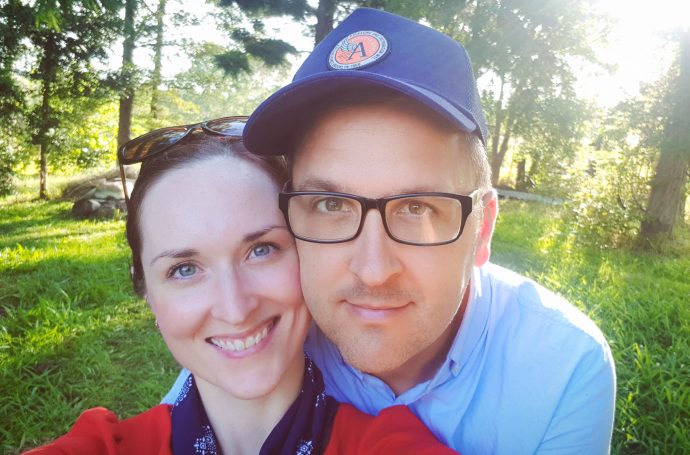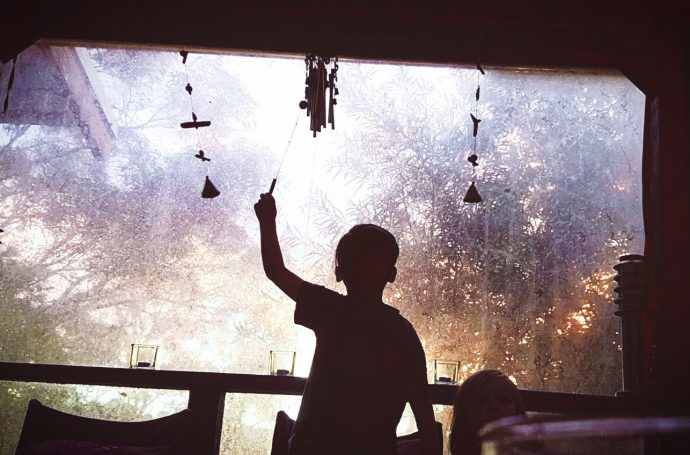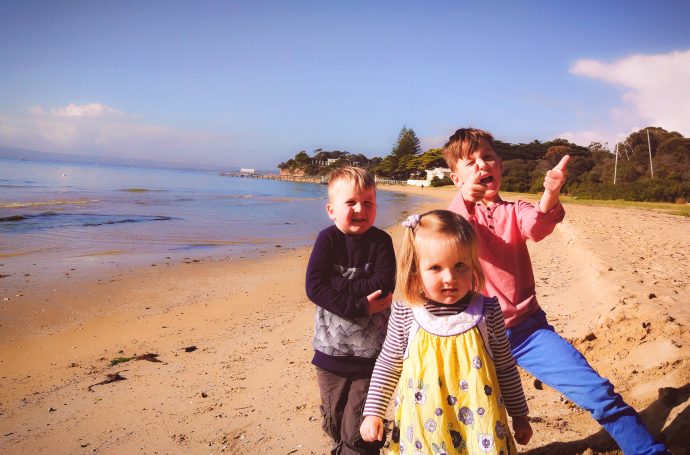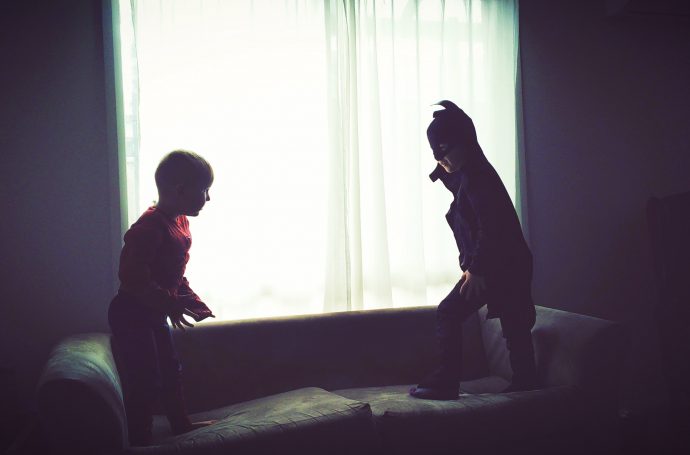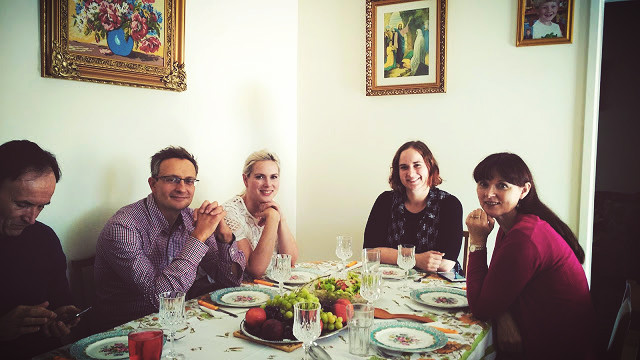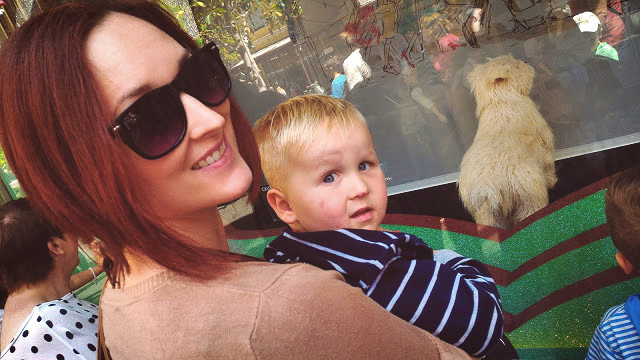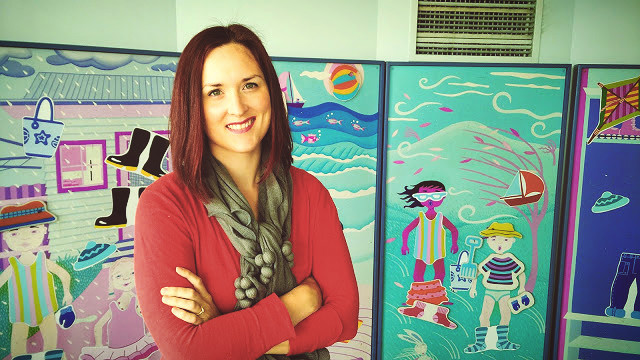I first published this back in 2016, but every word of it is just as applicable today. Dave and I ran a night for young married couples a few months ago and it was inspiring watching them discover big truths about themselves and each other through the lens of the Enneagram. Marriage can be hard sometimes, but knowing that there is a framework to help you make sense of how you respond to life and better understand the motivations of your partner can be a huge game-changer.
I’m sitting in a warm cafe. I can hear the sputter of milk frothing, smell the dark explosion of coffee beans releasing their aroma. Fingers rest on keys, newspapers crinkle, names of coffee orders are called out – punctuating the calm space.
Next to me, perched on bar stools, two guys in their thirties are discussing their marriages. ‘It’s like two ships in the night,’ one poetically offers – referring to the reality that the space has become – passing each other by, going in different directions, dealing in peripheries, never figuring out the life force that they share together.
Until it might be too late.
There is an urgency underlying their voices, and a confusion. ‘What is going on?’ ‘What is she thinking?’ ‘Where will we end up?’

Marriage is a strange and elusive entity at times. It can offer depths of love, security and intimacy that far surpass our wildest imaginings, but on the flip side, the loneliness, hurt and isolation that can be felt in the breakdown of relationship is brutal.
Words cease to be words and are symbols of all previous conversations on the matter. The give and take of privilege and responsibilities becomes transactional – ‘I did the dishes last night, it’s your turn now!’ ‘But you got to go out with your friends last week!’ Misunderstandings blossom, arguments feel like the repelling force of two mismatched magnets, where there is no meeting of minds, much less hearts.
We can’t always choose the way we initially respond to something. Emotions and exhaustion get in the way at times, causing us to lash out or take things personally.
I’ve had to resolve to stop answering the evasive ‘I’m just tired’ when Dave enquires what is wrong. The proffered excuse is rarely the real story. The difficulty arises where I simply don’t have the insight yet as to why an interaction or situation has affected me so much. Or when the explanation offered sounds petty or superficial.
Last week we clashed when I asked Dave to read something but failed to communicate how important the request was to me. He assumed it wasn’t urgent and my follow up requests felt like nagging. When I saw him zoning out on the couch reading NBA trade rumours and not the link I had just re-sent, I became sullen. He escaped the house for a while with the boys so that I could have a chance to cool off. Thankfully, when I figured out why I was so upset I was able to distil the problem into a text which allowed us to both apologise and regroup.
Communication.
So. damn. important.
One tool that has been incredibly insightful for us is the Enneagram. Not only does this framework for understanding your personality type show you what you do and why you are driven to do it, it also can predict the ways you will argue with your partner. You know those fights that you have over and over and feel worn out and misunderstood every time? The Enneagram breaks down the way you both communicate under stress, and the potential places for trouble in the relationship. It also focuses on the way that you can both thrive together, and the beauty that can result from uniting two different types of people.
This page has links to the forty-five possible combinations of Enneagram types and helpful tips about what to work on and avoid. If you haven’t already done the test to figure out what type you are, see here. It doesn’t take that long and it is the best tool I have found for understanding the complexity of the way that I respond and react to life and how I can better manage these reactions. An amusing tip – if you are struggling to figure out whether you have correctly identified your ‘type’ – is to focus on the one that is the most humiliating to you. It is clearly touching a nerve beyond your rational mind/ego!
Another insight that has helped us is a re-framing of love from one of Dave’s philosophers for his PhD – Bernard Lonergan. He proposes that to truly love is to desire the subjectivity of another. It seems that the opposite of love is not hate, as we have been brought up to understand, but power. When we desire to control the other – to affect their will, twisting and grasping it to our own ends – love cannot flourish. This is also a helpful framework for parenting, although we haven’t quite figured out the balance yet…
Humans are complex beings by themselves, let alone combined in a relationship! We see the best and worst of each other, and can choose to offer security or contempt, love or scorn. Love is an incredible risk and something worth diving into, but it takes a lot of communication, effort and constant realigning to make it work.
What about you? What are your tips for a flourishing relationship? Have you used the Enneagram to understand your combination of types before?

